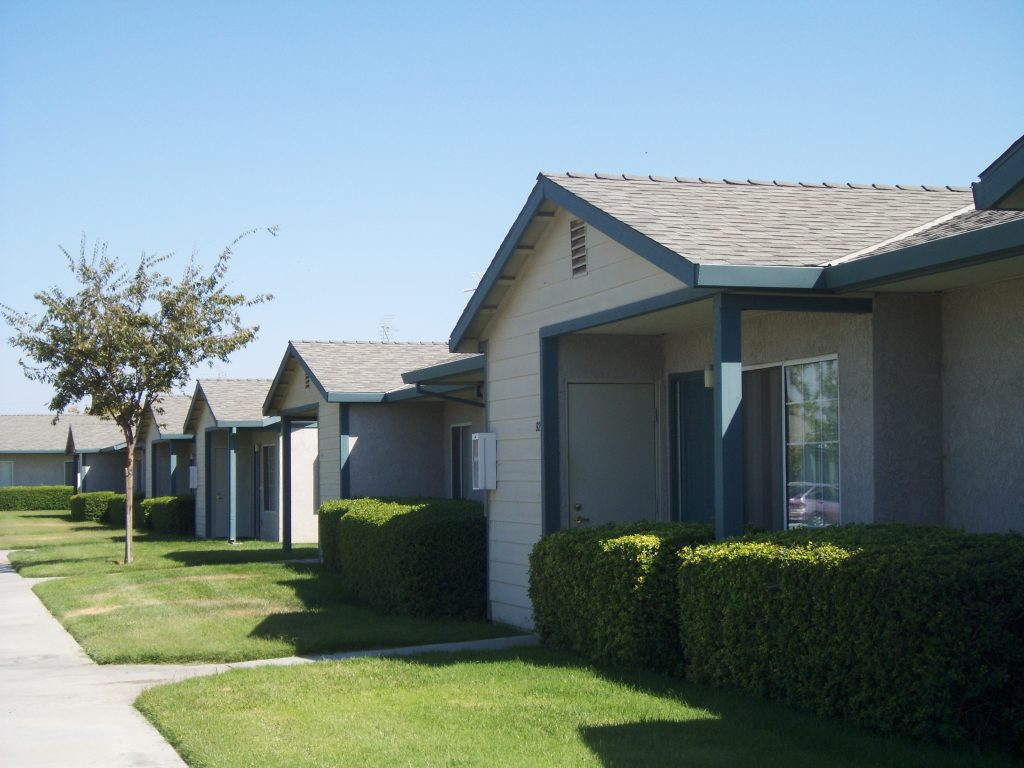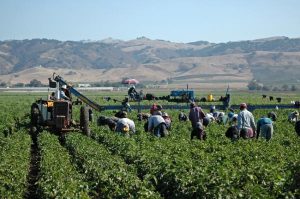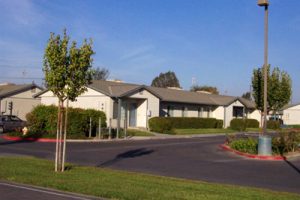Cutting-Edge Energy-Efficient Housing for Farmworkers
Cutting-Edge Energy-Efficient Housing for Farmworkers

Posted on July 31, 2017
 Agriculture is a huge part of the economy in California’s San Joaquin Valley. Yet the rural Madera County community of La Vina has a greatly underserved farmworker community with historic levels of overcrowded, cost-burdened, and substandard housing. Like rural agricultural based economies across the nation, most farmworkers in La Vina are some of the lowest income earners in California and struggle to access decent, affordable housing for their families.
Agriculture is a huge part of the economy in California’s San Joaquin Valley. Yet the rural Madera County community of La Vina has a greatly underserved farmworker community with historic levels of overcrowded, cost-burdened, and substandard housing. Like rural agricultural based economies across the nation, most farmworkers in La Vina are some of the lowest income earners in California and struggle to access decent, affordable housing for their families.
To help meet the housing need of the community, Self-Help Enterprises developed the Casas de la Vina apartment rental community in two phases beginning in 1992. The 56-unit affordable housing property not only provides a safe and permanent place to call home, it also now includes energy-efficient features that ensure a sustainable future for the residents. This year, Self-Help Enterprises received funding from the Low-Income Weatherization Program (LIWP) to install solar PV and other energy conservation measures at Casas de la Vina. Improvements included upgraded hot water systems for more efficient hot water distribution, replacement of all older windows with new energy efficient dual pane windows, replacement of older air-conditioning/heating units with new air-conditioning/heating units, new interior and exterior LED lighting, new faucet aerators and shower heads, attic insulation and duct sealing, and replacement of older refrigerators. The solar PV was sized to offset all of the common area and residential electrical loads.
These improvements have resulted in Casas de la Vina being the first known farmworker housing retrofit to achieve zero net energy. This means the total amount of energy used by the buildings on an annual basis is equal to the amount of renewable energy created on site. This reduces utility bills for residents and the property while also reducing greenhouse gas emissions and air pollution.
 All 56 energy-efficient units are exclusively limited to low-income farmworker families. All of the residents are entitled to means-tested rental assistance, and as a result, no Casas de la Vina resident pays more than 30 percent of their income on housing costs.
All 56 energy-efficient units are exclusively limited to low-income farmworker families. All of the residents are entitled to means-tested rental assistance, and as a result, no Casas de la Vina resident pays more than 30 percent of their income on housing costs.
Beyond providing decent, affordable housing, Self-Help Enterprises offers quality resident opportunity programs held at the Casas de la Vina community center. These programs are designed to enhance the everyday lives and futures of the residents and include an after-school program for children, financial fitness classes, computer literacy lessons, a free lunch program, nutrition classes, and English as a Second Language (ESL) courses.
The combination of affordable housing, energy-efficient features, and educational services contributes to the growth and sustainability of the Casas de la Vina community.
Recent Posts
Recent Comments
Archives
- February 2025
- January 2025
- December 2024
- November 2024
- October 2024
- September 2024
- August 2024
- July 2024
- June 2024
- April 2024
- February 2024
- January 2024
- December 2023
- October 2023
- September 2023
- August 2023
- July 2023
- June 2023
- May 2023
- April 2023
- March 2023
- February 2023
- December 2022
- October 2022
- September 2022
- August 2022
- July 2022
- May 2022
- December 2021
- October 2021
- September 2021
- August 2021
- July 2021
- June 2021
- May 2021
- April 2021
- March 2021
- January 2021
- December 2020
- November 2020
- October 2020
- September 2020
- July 2020
- June 2020
- May 2020
- April 2020
- March 2020
- February 2020
- January 2020
- December 2019
- November 2019
- October 2019
- September 2019
- August 2019
- July 2019
- June 2019
- May 2019
- April 2019
- March 2019
- February 2019
- January 2019
- December 2018
- November 2018
- October 2018
- September 2018
- August 2018
- July 2018
- June 2018
- May 2018
- April 2018
- March 2018
- February 2018
- January 2018
- December 2017
- November 2017
- October 2017
- September 2017
- August 2017
- July 2017
- June 2017
- May 2017
- April 2017
- March 2017
- February 2017
- January 2017
- December 2016
- November 2016
- October 2016
- September 2016
- August 2016
- July 2016
- June 2016
- May 2016
- April 2016
- March 2016
- February 2016
- December 2015
- November 2015
- October 2015
- September 2015
- August 2015
- July 2015
- June 2015
- May 2015
- April 2015
- February 2015
